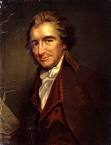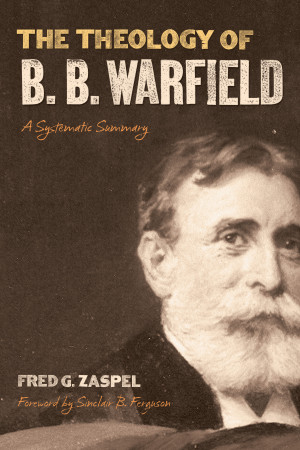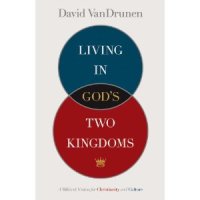"Earnestly Desire the Higher Gifts" -- 1 Corinthians 12:27-31
 Monday, September 20, 2010 at 09:18AM
Monday, September 20, 2010 at 09:18AM  Here's the audio from yesterday's sermon, the twenty-fourth in our series on 1 Corinthians.
Here's the audio from yesterday's sermon, the twenty-fourth in our series on 1 Corinthians.
Click here
Living in Light of Two Ages
____________________________
 Monday, September 20, 2010 at 09:18AM
Monday, September 20, 2010 at 09:18AM  Here's the audio from yesterday's sermon, the twenty-fourth in our series on 1 Corinthians.
Here's the audio from yesterday's sermon, the twenty-fourth in our series on 1 Corinthians.
Click here
 Sunday, September 19, 2010 at 06:32PM
Sunday, September 19, 2010 at 06:32PM 
The most important difference between the religions of the world and the Christian faith is the difference between law and gospel. At the core of every religion is the application of moral instruction and advice for personal transformation. This appeals to all human beings because we are all wired for law. But the essence of Christianity is not law but gospel. Christ fulfilled the law and paid the penalty for our lawlessness. The gospel therefore is not good advice that needs to be applied, but good news to be believed (originally aired February 10, 2008).
 Saturday, September 18, 2010 at 09:42AM
Saturday, September 18, 2010 at 09:42AM  "My own mind is my own church"
"My own mind is my own church"
Leave your guess in the comments section below. No google searches or cheating. Answer to follow in one week.
 Kim Riddlebarger
Kim Riddlebarger
 This familiar quote is from Thomas Paine's Age of Reason (1794), 2.
This familiar quote is from Thomas Paine's Age of Reason (1794), 2.
 Friday, September 17, 2010 at 11:56AM
Friday, September 17, 2010 at 11:56AM  This is a book I have been eagerly awaiting (Click here to order)
This is a book I have been eagerly awaiting (Click here to order)
As a student of Warfield myself, one of the things I've long desired is a systematic treatment of Warfield's theology. Now we have one.
B. B. Warfield wrote occasionally on every conceivable theological topic. He even wrote at length about systematic theology (which I address in my Ph.D. dissertation--The Lion of Princeton). But he never produced a systematic theology of his own.
Fred Zaspel has undertaken the Herculean task of going through Warfield's vast body of writing (and I mean vast!), and assembled a systematic treatment of Warfield's thought. Zaspel has arranged this material just as you would find it if Warfield had written a systematic theology.
I was privileged to have read through some of the draft manuscript before this went to press and I can heartily recommend this book to you.
Warfield is still a giant among men and may this volume help him speak to us today!
Thanks to the folks at Crossway for doing this!
Here's the publisher's info
______________________
Benjamin Breckinridge Warfield (1851–1921) was undoubtedly one of the greatest Reformed theologians in the history of America. As professor of didactic and polemic theology at Princeton University, he wrote extensively in defense of fundamental Christian doctrines. While his writing touched on the full spectrum of theological topics, it was spread over hundreds of periodicals, books, and pamphlets, and a significant portion has never been published in an accessible form. Warfield stands as a dominant figure on the theological landscape, but few have a comprehensive grasp of his theology, largely because of the difficulty of tracing his ideas through numerous sources.
Fred G. Zaspel has spent many years studying Warfield’s published and unpublished writing, and presents here a concise and coherent systematic theology per B. B. Warfield. For the first time ever, readers can, in one volume, access the content of this great theologian’s academic, sermonic, and devotional works. Scholars, pastors, and students will profit from the unique combination of comprehensive detail and devotional warmth in this systematic theology.
Endorsements
“Serious Christians who have dipped into Warfield find his writings to be a wholly admirable mix of rigorous exegesis, mature theological synthesis, and frank devotion to Christ. Much of his work is known only to specialists, not least because when Warfield first published it, it was scattered over many journals and books. Indeed, a fair bit of it was never published. Zaspel’s Warfield remedies the problem admirably: one hopes and prays that it will entice a new generation of readers to delve deeply into Warfield’s contributions.” “B. B. Warfield’s distinguished achievements as a systematic theologian have been obscured by the episodic, ad hoc publication of his major theological statements. But even if Warfield did not think it necessary that he write a single, connected systematic theology, it is nonetheless most welcome that Fred Zaspel has done the job for him! The result is a very useful compendium that gives both admirers and detractors of Warfield a full and coherent account of his theology. All who are in the least interested in Warfield or who care at all about vigorous Calvinist theology will find this a most valuable book.” “B. B. Warfield does not need an introduction for evangelical Christians. He is well known as a major conservative theologian at the close of the nineteenth and the beginning of the twentieth centuries. His scholarship in biblical, historical, and doctrinal fields was often without a match. As a Professor in Didactic and Polemic Theology in Princeton Theological Seminary, he was content to use the three volumes of Charles Hodge’s Systematic Theology as the textbook and to pour out the fruits of his labor in a flow of searching articles in a number of theological reviews. Many of these have been republished in book form, but they have not been systematically arranged in one text. That is what Dr. Zaspel has done in culling from the great mass of Warfield’s writings his actual statements in the order they could have followed had Warfield written a one-volume Reformed theology. In this form Warfield may enjoy a renewed effectiveness for our age. With great enthusiasm I highly recommend this volume and hope it will receive a wide reception.” “B. B. Warfield was without doubt the greatest of the theological minds of Old Princeton, and he remains a towering influence within both his own confessional Presbyterian tradition and wider conservative evangelicalism. Nevertheless, while his writings are still in print, clearly written, and very accessible, their occasional nature means that there is no convenient way of gaining from them a good grasp of the overall shape of his theology. Until now, that is. In this volume, pastor-theologian and passionate Warfield aficionado Fred Zaspel has produced a work of historical and theological synthesis that sets Warfield’s thought in context and offers a comprehensive account of his thought on the major loci of theology and the controverted points of his day. In this, Fred has left us all—the veteran Warfield fan and the neophyte—deeply in his debt.” “Well before the transdenominational convergence of what we now call the evangelical church, B. B. Warfield spent forty years as the Presbyterian Horatius, holding the bridge that leads into the citadel of the Westminster Standards against those he saw as spoilers from the wastelands of liberalism. A heavyweight academic and a complete player in the fields of systematic, exegetical, historical, and polemical theology, he scattered his wisdom in hundreds of articles, which this book surveys and integrates with great skill. Warfield can now be seen in his full stature as the godly giant that he was, thanks to Fred Zaspel’s labor of love. Best thanks, and hallelujah!” “This work is long overdue. That a theologian of the stature of B.B. Warfield should not have had a comprehensive overview of his entire corpus such as this one by Dr Zaspel says far more about the thinking of Evangelicals and the ranks of the Reformed in the twentieth century than it does about Warfield. This truly excellent and eminently readable work will serve both as a primer to Warfield's thought as well as an outline of the systematic theology he never wrote. Highly recommended.” “B. B. Warfield was the last towering figure in a long line of Old School Presbyterian intellectuals known for their unshakable faith in the truth of Scripture and their practical, experiential Calvinism. That strain of scholarly conviction had a long history in New England, especially in Princeton. Its seeds were planted by New England’s earliest Puritan ministers—men such as John Cotton and Richard Mather. It gained widespread influence (and set down roots in the soil of Princeton) under the ministry of Jonathan Edwards. It gave birth to Princeton Theological Seminary under the leadership of Archibald Alexander. Charles and A. A. Hodge carried on the legacy at Princeton Seminary, and when the younger Hodge died in 1886, B. B. Warfield became that institution’s fourth Principal. He also was its last great conservative theologian. Both profound and prolific, Warfield produced an invaluable body of theological and polemical writings that remain immensely influential—because the issues Warfield contended with are virtually the same issues that trouble the church today. “Fred Zaspel’s work is the first detailed, readable digest of Warfield’s theology, and it is an immensely helpful volume. Dr. Zaspel puts Warfield’s published writings in clear perspective against the theological issues that dominated that era. He also shows how those same issues—and Warfield’s clear and persuasive teaching—remain relevant to us today. Dr. Zaspel writes with such clarity and simplicity that this volume will be a valuable help and encouragement to lay people and serious theologians as well—a highly recommended addition to anyone’s library.” “The great B. B. Warfield was essentially an occasional writer. His works are largely made up of learned articles, encyclopedia entries, and popular journalism. Fred Zaspel had the great idea of rendering this vast body of material into a compendium, a Warfield systematic theology. He clearly has what it takes to do the job superbly well: a love for his subject, care and attention to detail, and, above all, a thorough knowledge of Warfield’s writing. The result is a book that does not replace the Warfield volumes, but provides an accurate, thematic entry into them. It will be of inestimable benefit to all students of this outstanding Reformed theologian. Well done!” “The ‘Lion of Old Princeton’ roars and purrs in this helpful survey. The author finely displays the passion and wit as well as intellectual credibility of Warfield’s remarkable work.”
—D. A. Carson, Research Professor of New Testament, Trinity Evangelical Divinity School
—Mark A. Noll, Francis A. McAnaney Professor of History, University of Notre Dame
—Roger Nicole, ETS Co-founder and its Seventh President
—Carl R. Trueman, Academic Dean and Vice President, Westminster Theological Seminary
—J. I. Packer, Professor of Theology, Regent College; author, Knowing God
—Michael G. Haykin, Professor of Church History and Biblical Spirituality, The Southern Baptist Theological Seminary; Director, The Andrew Fuller Center for Baptist Studies
—John MacArthur, Pastor, Grace Community Church, Sun Valley, California
—Paul Helm, Teaching Fellow, Regent College; author, Faith with Reason
—Michael S. Horton, J. Gresham Machen Professor of Systematic Theology and Apologetics, Westminster Seminary California
 Thursday, September 16, 2010 at 10:44AM
Thursday, September 16, 2010 at 10:44AM  According to a recent news story, budget airlines are experimenting with so-called "saddle seating" so they can pack more people into an airplane (Click Here).
According to a recent news story, budget airlines are experimenting with so-called "saddle seating" so they can pack more people into an airplane (Click Here).
You sit at an angle, you support yourself with your legs, and you get a whopping 23 inches of leg room--down from the "roomy" 30 inches of most coach seating.
I'm sure hoping this doesn't catch on!
I'm not afraid of flying, but I hate it. It is a giant hassle (getting in and out of the airport, all the security issues, etc.), and now it often takes me a couple of days to recover.
I knew I hit middle-age when the airline seat, the softness or hardness of the hotel bed, along with the pillow I slept on, had as much to do with the success of the trip as anything else. It is hard to speak or do business when your neck is out of whack or your back hurts.
I hate being packed into a small and uncomfortable seat. I hate being told that you can't get up and move around the plane like the good old days. I remember dressing up to fly, eating real food on plates with silverware. Everybody watched the movie.
Remember the lounge upstairs in the second level of the 747? You could hang out there, chat and even play pong. Now that was the way to fly!
No wonder TV evangelists, celebrities, politicians and athletes buy their own jets. Sure beats saddle seating!
 Monday, September 13, 2010 at 07:36AM
Monday, September 13, 2010 at 07:36AM  The audio from Sunday's sermon has been posted:
The audio from Sunday's sermon has been posted:
Click Here
 Sunday, September 12, 2010 at 05:54PM
Sunday, September 12, 2010 at 05:54PM 
What is the heart of the gospel message? On this program the hosts make the claim that the essential core of the good news is the doctrine of justification by an imputed righteousness, namely, that we are declared righteous not because of anything we have done but rather on the basis of the righteous life and sacrificial death of Jesus Christ. The hosts also discuss how this doctrine is being ignored or outright denied in our time (originally aired October 7, 2007).
 Saturday, September 11, 2010 at 09:24AM
Saturday, September 11, 2010 at 09:24AM 
"It's been my observation that Reformed men who justify silence in the public square under the rubric of `two-kingdom theology' and `the spirituality of the church' are usually unconcerned about the sexual anarchy, oppression, and bloodshed of innocents that has long been the foundation of our civil compact here in these United States. In my experience they simply don't give a rip.
It's self-evident on any terms a civilized man accepts for the foundation of common law that sending wives, sisters, and mothers off to fight our enemies is evil, but see if spirituality-of-the-church men address the civil magistrate condemning this evil? It's self-evident on any terms a civilized man accepts for the foundation of common law that ripping unborn babies apart in their mothers' wombs is an evil as great as the world has ever known, but check out whether the two-kingdom men you know write about it on their blogs, speak against it in the public square, preach against it in their pulpits, or show up at the killing place to lift a finger to stop it."
Please leave your guess in the comments section below. PLease, no google searches. Answer to follow next week.
 Kim Riddlebarger
Kim Riddlebarger
As many of you guessed, this is from Tim and David Bayly's blog, "Out of our Minds Too" and can be found here: The Bayly Blog
Darryl Hart responds here: Hart's response
Oh, and here's a link to David VanDrunen's book on medical ethics where he condemns abortion and euthanasia (something "radical" 2K people are supposedly not interested in doing). VanDrunen's book on medical ethics
 Friday, September 10, 2010 at 10:46AM
Friday, September 10, 2010 at 10:46AM  Darryl Hart revisits a topic that has been broached from time to time--the production of a new Reformed/Presbyterian confession. Darryl provides links to some of the more important discussions. I'm on-board. I think this is a great idea. Just as we need an up-to-date dogmatics text, Bible translation and liturgical forms, so too we need a new confession which addresses issues currently facing the churches. Also, this would be a great way to see the North American Reformed and Presbyterian churches unite around a common confession. Not likely to happen, but we can dream. A New Confession?
Darryl Hart revisits a topic that has been broached from time to time--the production of a new Reformed/Presbyterian confession. Darryl provides links to some of the more important discussions. I'm on-board. I think this is a great idea. Just as we need an up-to-date dogmatics text, Bible translation and liturgical forms, so too we need a new confession which addresses issues currently facing the churches. Also, this would be a great way to see the North American Reformed and Presbyterian churches unite around a common confession. Not likely to happen, but we can dream. A New Confession?
Mike Horton has written a great essay on the "Burn the Koran" issue. You can find the follow-up post here, as well as a link to the earlier post: Burning the Koran?
More two kingdom confusion. "Lets have an Imam pray before the city council meeting to show our `solidarity' with him." I'd prefer to do that through the Pledge of Allegiance (i.e. in the civil kingdom), rather than having to sit there with my eyes open and my arms folded in disgust while some Imam prays that the city submit to the will of Allah. Let the Iman Pray?
This really chaps my hide! 41 current White House aides owe the IRS over $831,000.00 in back taxes. Don't you just love the Beltway crowd? Our tax dollars pay their salaries. They don't produce anything, so there is no "multiplier effect" (take that Keynes). Then, these bureaucrats are taxed on their salary, which they owe to the IRS. But then they don't pay it. The nerve of these guys! White House Tax Delinquents
 Tuesday, September 7, 2010 at 01:30PM
Tuesday, September 7, 2010 at 01:30PM 
David VanDrunen's highly anticipated book on the two kingdoms is scheduled for release on October 31.
If this topic is of interest to you, this will be must reading.
Here's the info from the publisher (Crossway).
__________________________
Modern movements such as neo-Calvinism, the New Perspective on Paul, and the emerging church have popularized a view of Christianity and culture that calls for the redemption of earthly society and institutions. Many Christians have reflexively embraced this view, enticed by the socially active and engaged faith it produces.
Living in God’s Two Kingdoms illustrates how a two-kingdoms model of Christianity and culture affirms much of what is compelling in these transformationist movements while remaining faithful to the whole counsel of Scripture. By focusing on God’s response to each kingdom—his preservation of the civil society and his redemption of the spiritual kingdom—VanDrunen teaches readers how to live faithfully in each sphere.
Highlighting vital biblical distinctions between honorable and holy tasks, VanDrunen’s analysis will challenge Christians to be actively and critically engaged in the culture around them while retaining their identities as sojourners and exiles in this world.
Endorsements
“For those interested in a Reformed two-kingdom model, I can think of no better book to start than Living in God’s Two Kingdoms. Redemptive-historical in scope, heavenly minded in emphasis, and gentle in tone, David VanDrunen has made a great contribution to the ongoing discussion of the relationship of Christianity and culture.” “Any Christian perplexed by the Bible’s challenge to live as a dual citizen of God’s eternal and temporal kingdoms will find VanDrunen’s wise and charitable book an indispensable guide in sorting out the confused thinking that entangles the church today. This succinct and timely alternative to neo-Calvinism’s transformationist vision lays the groundwork for a wide-ranging and urgently needed discussion about two-kingdom theology’s implications for education, the workplace, and politics.” “For some years now, I’ve been asking students to read works by Prof. David VanDrunen of Westminster Seminary California. VanDrunen has a gift for recovering themes from the political theology of the Reformation and demonstrating their continuing relevance. In this book, VanDrunen shows that the Reformation’s two-kingdoms theology allows Christians to faithfully navigate a course between, on the one hand, investing excessive hope in earthly government or, on the other, retreating from political life into isolationist enclaves. Particularly welcome is his emphasis on the liberty of biblical Christians to reach differing conclusions about how our political engagement might glorify God.” “Evangelicals today, including those within the Reformed community, have become annoyed by the competing (and, in a few cases, embarrassingly inadequate) ‘transformationalist’ programs offered by leading Christian thinkers. With clarity and concision, David VanDrunen has offered an alternative perspective that liberates the Christian conscience to sincerely engage society without relegating the sovereignty of God over ‘every square inch’ of it. Living in God’s Two Kingdoms will certainly stimulate debate and force Christians to reevaluate the relationship between Christ and culture.” “The Apostle Peter writes that Christians are God’s own people, sojourners and exiles in this age. What does this calling mean for the way in which believers work in their jobs, raise their families, educate their children, and vote at the polls? In Living in God’s Two Kingdoms, David VanDrunen addresses these questions and more, offering a robust and reasoned alternative to transformationalist understandings of Christianity and culture. Whether or not readers agree with every argument in Living in God’s Two Kingdoms, they will find themselves engaged and challenged to think constructively and biblically about a critical issue in the life of the church. VanDrunen has done a great service to the church in promoting continued reflection on Christianity and culture, and in offering sound practical counsels to Christians eager to serve God in their pilgrimage heavenward.” “Over the past century, evangelicals have jumped out of the frying pan of quietism into the fire of worldliness. Taking his cue from Scripture rather than merely responding to cultural trends, David Van Drunen outlines a biblically grounded theology of cultural engagement that reflects both the lordship of Christ over all creation and the special mission and calling of the church. This book, bold and unapologetic, provides some extraordinarily helpful categories for thinking clearly about what it means to live faithfully and wisely in the present age.”
—Danny E. Olinger, General Secretary, Committee on Christian Education of the Orthodox Presbyterian Church
—Richard M. Gamble, Anna Margaret Ross Alexander Professor of History and Political Science, Hillsdale College
—Randy Beck, Professor of Law, University of Georgia School of Law
—Ryan McIlhenny, Assistant Professor of Humanities, Providence Christian College
—Guy Prentiss Waters, Associate Professor of New Testament, Reformed Theological Seminary, Jackson, MS
—William S. Brewbaker III, Professor of Law, University of Alabama